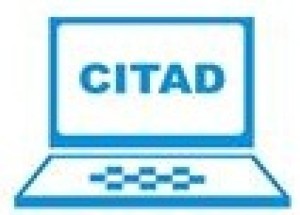
CITAD Trained Journalists, Csos and Students On Internet Security And Safety In Jigawa
Internet has become an indispensable part of our daily life. We need it to communicate study, organize, advocate, carry out financial transaction and engage in community life. Embedded in it are perils that pose threat to our privacy, safety, confidentiality and even endanger us both as individuals and as a nation if we do not know how to navigate and avoid these perils.
In view of this, the Centre for Information Technology and Development (CITAD) have been organizing workshops to enlighten and educate the general public about the dangers that are associated with internet and how individuals can protect themselves from being harm either financially or their integrity. On the 23rd of November, 2017 the Centre organized similar workshop in Dutse, Jigawa state to Journalists, CSOs and students of tertiary institutions in the state.
The workshop was facilitated by Engineer Kamal Umar of the Training Department, Centre for Information Technology and Development and Hamza Ibrahim, Research and Media Officer of the same centre. In his opening address Engineer Kamal informed the participants that the aim of the workshop is to equipped the participants with necessary and prerequisite knowledge/information on how to stay safe online, know the various techniques used by the hackers, how to identify fake sites, why strong password and also how to shop online if necessary.
Three papers were presented at the workshop; General Online Safety Tips and Internet Safety and Privacy Issues by Engineer Kamal and Understanding Internet Security and Safety by Hamza Ibrahim. The facilitators took the participants deeply in explaining the various threats that are associated with internet such as Hacking, Spread of malicious virus, Internet shutdown, Data corruption, Sites jamming, Data and Documents thefts, Phishing, Email spoofing/spam bots, National security threats. In his explanation, Engineer Umar mentioned that people/countries are no longer using weapons in attacking their enemies rather they turn to cyber war where countries/people are stealing and interfering with other people/countries sensible information and use it to disrupt or harm them, he gave an example with what happened during the last American presidential election where Russia interfered and changed the result to its favorite candidate.
Towards the end of the workshop passwords testing session was conducted, where participants tested their passwords in order to know how strong or how long it will take a hacker to hack their accounts. Some of the participants that bragged their passwords were strong found out that the reverse is the case which made them to change it instantly.
At the end of the workshop questions and comments were entertained. One of the participants asked the facilitators on how someone can make his password strong, in his respond Hamza Ibrahim answered that by using different characters; numbers, block letters, small letters (mixer of different characters) etc. in his comment, Malam Khalifa said he never thought putting password on his devices is very important and necessary but with today’s workshop, he has seen and also known the importance of doing it. Basirka also commented that before he never knew the necessary and important sites to visit on the internet but now he can differentiate between fake and genuine websites and also how to make his password strong.
Finally, a vote of thanks was given by Mr. Ali Sabo, CITAD Coordinator in the state where he thanked the participants for answering the invitations and urged them to put in place what they have learnt at the workshop and to also extend the knowledge and share it with their colleagues, friends and families.



